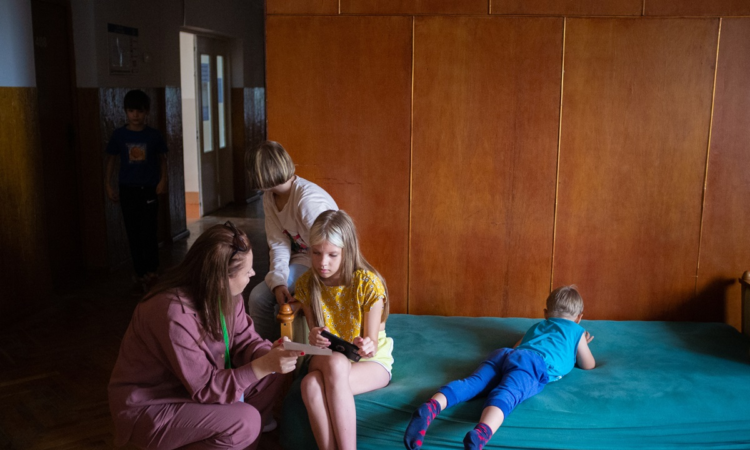WHO outlines crucial research priorities for better refugee and migrant health – World Health Organization (WHO)

The World Health Organization (WHO) has published its first-ever Global research agenda on health, migration and displacement to guide research efforts to understand and address the health needs of migrants, refugees, and all forcibly displaced populations and shape responsive policies and practices worldwide.
There are one billion people currently leaving their homes by choice or force due to various factors such as wars, conflicts, income inequalities, economic shifts, urbanization, and climate change. It is essential to develop evidence-based policies that ensure no one is left behind. However, there is a lack of comprehensive knowledge about what works to better support the health of people on the move. This gap in knowledge impacts people’s well-being, and it slows down global progress towards universal health coverage (UHC) and Sustainable Development Goals (SDGs).
During the year-long consultative process of the Global research agenda with over 180 key stakeholders from all regions representing expertise from diverse backgrounds and migration and displacement contexts, five priority research themes were agreed that require greater investment:
“The first WHO Global research agenda on health, migration and displacement is an important step in our efforts to drive evidence-informed policies and practices,” said Dr Tedros Adhanom Ghebreyesus, WHO Director-General. “By bridging the knowledge gap on the health needs of some of the world’s most vulnerable populations, the report will help us navigate a world that is increasingly on the move.”
The priorities outlined in the agenda are relevant to all areas of global public health and policy development and can be applied to varying geographical regions and migration contexts. If translated into action, they will improve research on the health of migrants, refugees and all forcibly displaced populations, support countries to develop health systems that are more responsive to current and future population movement and protect and promote the health of all people on the move and their receiving communities worldwide. It will encourage progress by supporting leaders at all levels to make inclusive, evidence-informed health care policies.
“In today’s interdependent and interconnected world and with the many ongoing severe acute and protracted crisis around the world, migration and displacement cannot be considered separate issues from other efforts in global health,” said Dr Jeremy Farrar, WHO’s Chief Scientist. “The Global research agenda on health, migration and displacement is a call to action and an alarm bell to expand global knowledge on the health needs of migrants and forcibly displaced. We need to know more about their access to health services, their inclusion in health systems, the best ways to respond to their needs during health emergencies and turn all of this evidence into tangible impact.”
The Global research agenda will also serve as a foundation for developing regional and national research agendas to turn the global themes identified into context-specific research questions. An implementation guide and toolkit is contained within the Global research agenda, which will support policy-makers, civil society and non-governmental organizations, and other United Nations agencies to apply the research agenda to their various migration contexts and organizational needs.
An interactive dataset exploring the global research funding landscape in the field of health, migration and displacement will be used as part of the monitoring and evaluation process for the Global research agenda. This dashboard, hosted by the WHO Science Division on the WHO Global Observatory on Health Research and Development, demonstrates that the current research funding in this field at the global level is not enough to meet the urgent research gaps identified in the Global research agenda.
“The global research agenda will catalyze high-quality context-specific knowledge on the health of migrants, refugees, and other displaced populations globally,” said Dr Santino Severoni, Director of the WHO’s Department of Health and Migration. “By understanding the health of people on the move we can create equitable policies, programmes, and interventions that improve the health of all society and make progress towards attaining the SDGs.”
Media Contacts
WHO Media Team
World Health Organization
Related
Fact sheets
Events
More
WHO Department of Health and Migration
Refugee and migrant health (Health topic)







